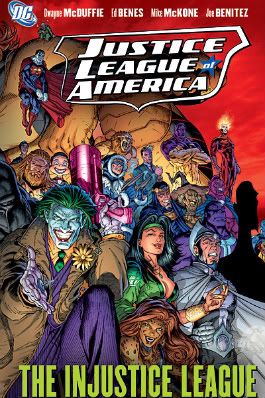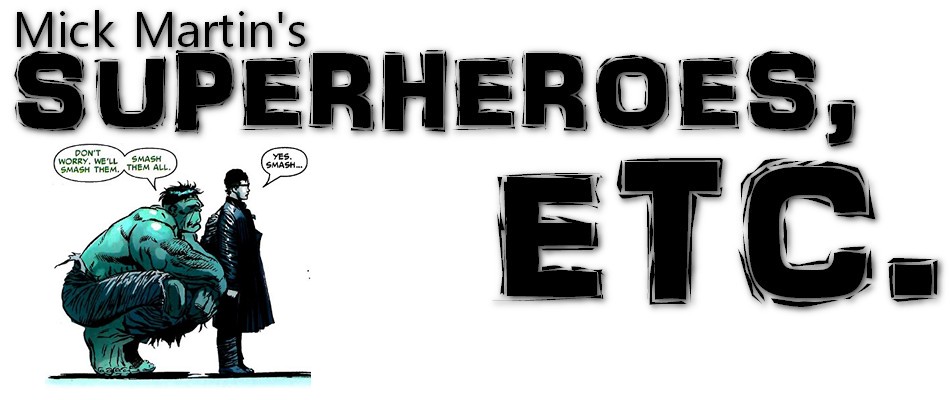 Justice League of America: The Injustice League HC
Justice League of America: The Injustice League HCBy Dwayne McDuffie, Ed Benes, Mike McKone and Joe Benitez
Published by DC; $19.99 USD
Collects Justice League of America #s 13-16 and Justice League of America Wedding Special #1
I haven't read any Justice League titles regularly since the Busiek/Garney JLA run. When it comes to the Big 2 I gravitate toward Marvel anyway. For the last few years, most of my DC superhero entertainment has come either from Christopher Nolan's Batman films or the Justice League cartoons. Since Dwayne McDuffie was a regular writer on Justice League and Justice League Unlimited, I hoped a collection of his work on the more recent Justice League of America would be an easy reintroduction to DC's premiere superhero team.
The Injustice League gives me the impression that McDuffie's transition from writing these characters in a popular cartoon to writing them for the comic was an awkward one.
The plot is no more complex than you would expect from the title. Lex Luthor forms another Injustice League with a whole gaggle of supervillains (though I would point out that something like half the bad guys on the cover don't appear anywhere in the book) and goes after the Justice League.
From beginning to end Justice League of America: The Injustice League reads as if it's trying and failing to be hip and keep up with more recent superhero trends. The events of Identity Crisis in particular are milked to death in a subplot involving Cheetah's objection to Doctor Light's recruitment into the Injustice League. Strange, considering in a room full of super-powered men and women defined by their love for all things evil, I find it tough to imagine Doctor Light is the only rapist. The story is filled with scenes of dialogue that act as awkward attempts at hip levity, like an utterly laughless argument between John Stewart and Black Lightning about Lightning's shaved head. There are failed attempts at superhero "realism" like a scene explaining why doctors and nurses don't reveal the identities of patients they treat.
There's a lot of awkward, forced and just boring dialogue in the book. One scene in particular bothers me more than any other. Superman and Black Lightning are recovering after a bad tussle with Lex and his cronies. Lightning is trying to convince Superman that Lex is pushing his buttons. When Superman points out that Black Lightning isn't completely objective about Luthor either, Lightning says "The difference is I can keep things in perspective. I'm no Superman. Good as I am, I've lost a few." Superman responds "That makes one of us."
Yeah, Superman wouldn't say that. Not only is it uncharacteristically dickish, but it's completely untrue. The scene takes place in the aftermath of a battle he just lost, after all.
The art isn't much better than the writing. In some cases it seems like there was a communication breakdown between writer and artist, particularly in panels when the characters' dialogue and expressions don't match.
As a snotty little comic book reviewer, I will admit to the occasional malicious glee at the notion of reviewing a book just to trash popular writers whose work I feel is overrated, though I do that less now than I used to and regret some past reviews for that very reason. But McDuffie isn't one of those writers. I've enjoyed his work in the past but Justice League of America: The Injustice League is unfortunately not only the worst book I've read by him, but one of the least impressive superhero books I've ever read.

2 comments:
I read these when they hit the stands, came into it with the same hopes you had, and was every bit as disappointed. It's sort of a geek shortcut to say I wish McDuffie had just stuck to what he did with the animated series, but boy, I wish he'd stuck to what he did with the animated series. Because this was just bad.
I'm 100 percent certain McDuffie would have brought the same excellence to the comics that he did to the animated series, if he had been allowed free reign to tell the stories he wanted to tell. The failure of this era of the comic is squarely on the shoulders of DC and its editors.
Post a Comment